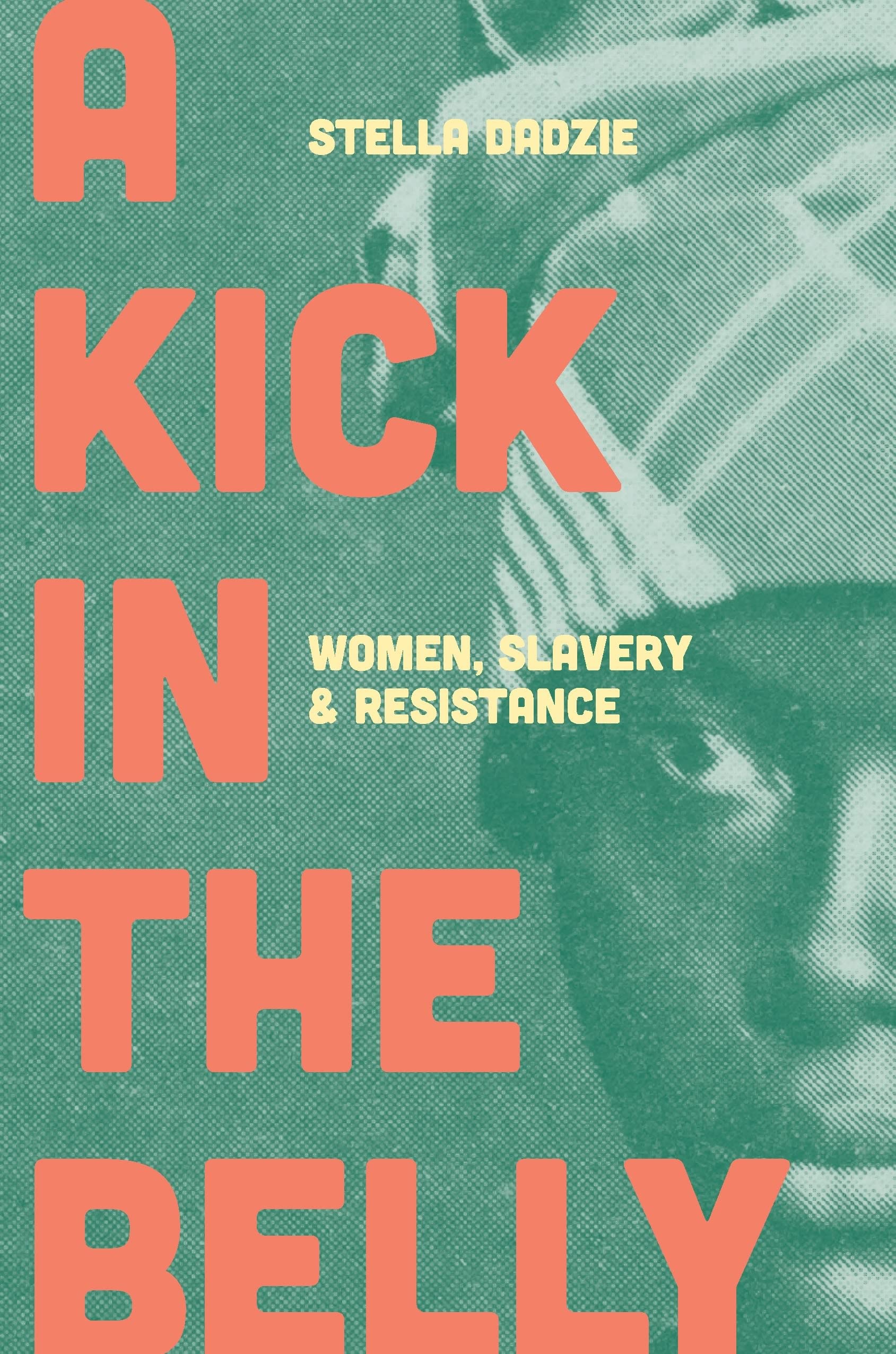A Kick in the Belly – Stella Dadzie Book Review

Best known for co-authoring The Heart of the Race: Black Women’s Lives in Britain, Stella Dadzie, in her most recent contribution to women’s history, A Kick In The Belly: Women, Slavery and Resistance, offers the reader a rich insight into the key role enslaved African women played in resistance in the West Indies. ‘A Kick in the Belly’ derives from an observation in a Journal of a West India proprietor by Matthew ‘Monk’ Lewis, who witnessed ‘bookkeepers and overseers kick black women in the belly.’ For Dadzie, this reflected metaphorically the centuries of maltreatment and brutalisation these women faced and thus the title only seemed apt for a book such as this.
Divided into 7 chapters, it focuses on powerful themes: ‘British-exceptionalism’, colonialism, historical amnesia, systemic racism, misogyny, feminism; and motherhood. The organisation of this book is owed to Dadzie’s success in achieving her aims to provide agency and identity to these inspirational African women while debunking centuries of racist stereotypes ascribed to them. This is set out in her coherent and concise introduction. Dadzie’s voice certainly comes through in a conversational style, making her informative book easy to follow and accessible to a wide-ranging demographic. Whilst it is a contribution to academic scholarship, it is by no means restricted to this domain. However, a potential shortcoming in Dadzie’s work is her acknowledgment of Afro-centric historians in her introduction but does not elaborate on their discourse throughout the book. Nevertheless, this does not detract the agency from the women in writing, which is Dadzie’s primary focus.
From subtle acts of resistance such as refusing to open some of their master’s curtains to full utilisation of motherhood, this new body of literature is achieved through a wealth of primary sources. These range from letters, intimate journals, and plantation records to female slave biographies such as History of Mary Prince. Through these first-hand accounts, it allows these women to be the protagonists of their own history and reclaim their voices lost to the Euro-centric despotism of the curriculum.
This book’s publication could not have come at a more crucial time in shaping the decolonization discourse. This in conjunction with combating the intrinsic racism and misogyny within our current capitalist and patriarchal curriculum, whilst providing African women with the agency they have long been denied as the European record has prevailed and dominated. Furthermore, it allows many people today to understand their heritage and reclaim their identity which has been lost as centuries of ‘historic amnesia’ has ensued.
The decolonisation discourse allows an open and honest conversation about the racist and misogynistic past and how it has permeated and constructed our modern society. It is a history that has long been brushed under the carpet, in the hopes of eradicating the ‘Others’ histories. 2 Ibid., p. 65. 1 Stella Dadzie, A Kick In The Belly: Women, Slavery & Resistance (London, 2020), p. 89. This book successfully debunks that and places these women and their experiences at the centre of history and gives them their rightful identity back.
Dadzie’s main findings are that resistance took the form of motherhood and was the ‘carrier of its roots’, proving that no matter how cruelly the women were treated, they could not be destroyed. Thus, they could pass down their traditions and legends, maintaining their identity irrespective of how hard white supremacists tried to eradicate their history. Alternatively, Dadzie also offers that not having a child was also an act of resistance because the decline of the slave population in the West Indies came hand-in-hand with its economic implications that were detrimental to the planter. In Jamaica, economic rewards were offered to slaves to ‘bring out child.’ Dadzie thus demonstrates well the economic dependency planters had on the slaves as they completely dehumanised and reduced them to merely a trading commodity.
Most readers will have prior knowledge about the ‘successes’ the British Empire achieved- as taught in our schools- while its nefarious history is less known. The Black Lives Matter movement has fervently brought much-needed attention to the darker side of the empire. This historic turning point of activism for decolonising the curriculum and publication of works such as Dadzie’s provides the steps in the right direction for this process to occur. There is certainly no going back.
Whilst, as an intersectional feminist, I engage in a comprehensive range of literature and scholarship that explores themes of racism and misogyny as covered by Dadzie in her book, I was unaware of the extent to which African women were such a key role in the resistance to slavery in the West Indies. Thus, it is a clear example of how important a contribution this book is because I was able to identify this ignorance within myself through its educating purposes uncovered by its rich primary sources.
After reading this thought-provoking book, I find myself with more questions about our inherently biased education system and why, like so many others, have these women been denied a place in our history books- something Dadzie does well to address. I implore all readers to do the same to ensure a fully comprehensive system is achieved. We cannot sweep the historic and intrinsic racism of slavery under the carpet. We need to lay it out in the open and have an open and honest conversation about it in order to bring about real change and challenge the system. Not only is A Kick In The Belly a conversation starter to this discourse, but it will also have a long-lasting legacy by giving a platform to the neglected voices of female African women.
Through subtle acts of resistance, these women ‘not only retain[ed] their cultural identity but surviv[ed] to tell the tale’ of which Stella Dadzie is able to bring to life.
Review written by Millie Butler
